Keep Up to Date with MDG
MDG News and Updates

Constantly Developing New Products!
I am amazed by all of the studies and tests taking place in our lab to develop new and improved products. This really keeps our customers on the cutting edge of new technology. Just when I think we have found the final solution to a major problem area for one of our partners, we continue working to find something even better. It seems like everyone at Microbial Discovery Group has an obsession with solving problems, while others just seem to stop working after they find one solution that works pretty well. This year alone, we have developed so many new products, some we currently offer, and others should be available shortly. Don’t hesitate to ask if we have a product that works in a particular situation, you may be very surprised to find out that we have it currently on stability testing. I look forward to your call! – Michael Davis

What’s Your SPEC?
As consumers, we constantly search for a particular level of quality in everything we purchase. From toilet tissue, cleaning products, or microbial products, there is an expectation to deliver upon standards. Those standards are established through trust, and it’s incredibly important to uphold that trust to keep the customer coming back. MDG is passionate about delivering a product that meets that high and personal standard. A standard we achieve each time through our trusted processes and quality control (QC) testing. Compatible ingredients such as preservatives, dyes, surfactants, and fragrances are recommended from a list of stability tested ingredients guaranteeing a two-year shelf life. Once an existing or newly formulated product is created, its blended and the SPECs (specifications) are tested via our quality control lab. SPECS such as the effective amount of bacteria for the application, factors that prevent spoilage (pH and preservatives), and making sure there are no unwanted organisms such as pathogens present in the final product. The SPECS are essential to consider the level of quality when QC checks a concentrated Bacillus product, see below: CFU: AKA, CFU/g or ‘Colony Forming Units’ per gram. This value represents the actual number of culturable cells in a gram of material. This […]

Bacillus Utilize VFAs as an Energy Source
If your customer is smelling the result of decomposing organic matter, such as feces, other bodily fluids, dairy, meat, or plant-based materials, chances are they’re smelling a Volatile Fatty Acid (VFA). Figure 1. Common odors associated with VFAs. VFAs are organic acids produced by the microbial metabolism of biomass and food waste; such as dietary fiber, starch, protein, and amino acids. To beat these odors, certain strains of Bacillus have the ability to breakdown VFAs, thereby helping to reduce the problem at the source. At Microbial Discovery Group (MDG) an in-vitro study was conducted to measure the growth of our Bacillus strains in the presence of VFAs. SporActiv® Foundation was grown in media containing acetate and a combination of common VFAs found in the I&I market; acetate, butyrate, propionate, valerate, isovalerate, and isobutyrate. These VFAs were chosen because of their known connection to unpleasant odors. RESULTS Figure 2. Increase in growth of SporActiv® Foundation grown in media containing acetate, or a combination of six VFAs. The results show that growth of SporActiv® Foundation Bacillus increased by more than 50% when acetate was present, and by more than 100% when the six VFAs were present (Figure 2). The addition of these VFAs allowed for increased Bacillus growth, indicating the […]
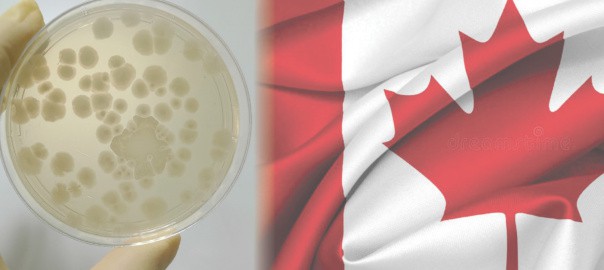
More Bacillus Strains to be Available on the Domestic Substance List
MDG has completed its obligation to notify under the New Substance Notification Regulations (Organisms) for Environment and Climate Change Canada (ECCC) on strains of Bacillus. Once imported into Canada the strains will be added to the Domestic Substance List (DSL) increasing MDG’s product offering into Canada. Adding these additional strains to the DSL will allow for more products from MDG to be available, focusing on core brands, Biotifx® for Wastewater Treatment and SporActiv® for the Industrial and Institutional market, to be sold in Canada. What is the Domestic Substance List: The Domestic Substance List (DSL) is an inventory of all chemical (and microorganism) substances manufactured in, or imported into, Canada on a commercial scale. 1 The DSL does not cover microorganisms that are regulated by other agencies such as those in food, feed, and fertilizer. The list was originally published in May 1994 with 23,000 substances included. 1 Today the list is at 28,000 substances, including microorganisms, and growing. 3 MDG Bacillus Strain on the DSL: Microorganisms, like MDG’s Bacillus, already exist on the DSL. Each microorganism strain is a unique substance, and each must be reviewed on its own merits for safety. The New Substance Notification (NSN) risk assessment includes general information on the strain, its ecological and biological characteristics, […]
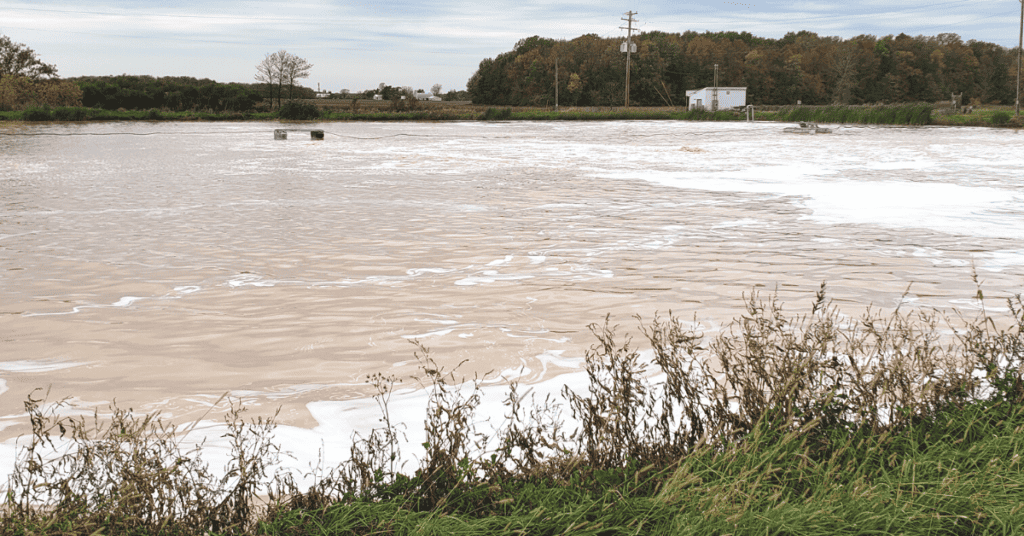
Pulp and Paper Lagoons Problems
It’s been a tough few years for the pulp and paper (P&P) industry. With an increase in foreign competition and a lowered demand for paper, many facilities have had to tighten their belt. One of the most probable victims of these cuts are the wastewater treatment systems. Wastewater needs to be cleaned while sludge continues to build up. What was once full capacity-lagoons ready to handle a lot of wastewater are now full of sludge. With limitations on a budget, land to build more lagoons and time allotted for dredging, the sludge and holding capacity concerns have fallen to the wayside to be dealt with another time. Maybe that time is now. Those full lagoons are rearing their ugly heads and maybe you’re realizing that you shouldn’t have ignored that sludge after all. You have no time to build an extra lagoon or dredging may not be a quick enough or a financially viable option. Enter a third possibility: Bioaugmentation. With the help of hardy Bacillus bacteria, you can treat the incoming sludge as you go, while also reducing your current sludge blanket. With bioaugmentation, you can experience results over time and restore treatment capacity. This buys you time and improves water treatment simultaneously. Pulp […]
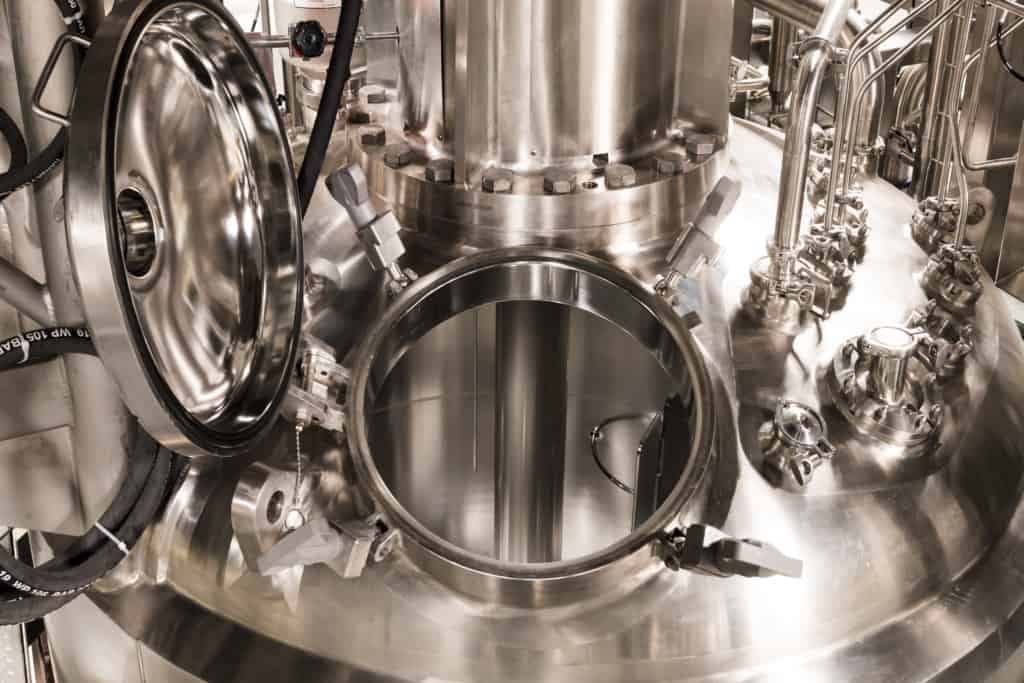
Supplying Quality: One Strain at a Time
In the large-scale liquid bacterial fermentation world, there are two primary ways to grow bacteria: as individual strains or in combination with others. At Microbial Discovery Group, we grow one strain at a time as it has served us well over the past decade. Truth be told, if I could find a way to grow multiple strains in one batch that was produced through a consistent process, resulting in high yield and uniformity in strain ratio, was guaranteed for purity, and ensured maximum sporulation – I would use it for our wastewater treatment products. Over the years we have experimented in finding different ways to accomplish this large task, but sadly none of the results measured up against our 5 criteria for success. Therefore, we are leveraging our expertise in growing one strain at a time to consistently meet our customers’ needs. Growing one strain at a time ensures: Highest strain yield Guaranteed purity Process consistency Uniformity of strain ratio Maximum % sporulation Highest Strain Yield Throughout the years we have found ways to get extremely high yields when growing one strain at a time. I believe our record is just under 3 x 1010 CFU/mL in the fermentation broth. I […]

The Benefits of Liquid Dosing
Many wastewater distributors are faced with finding an efficient product to combat common challenges such as sludge, fats, oils, and grease, and odors. Bacillus-based products have been proven highly effective and reliable to reduce, eliminate, and alleviate these challenges in the wastewater market. Did You Know These Products Come in Liquid Form? MDG formulates liquid products that include Bacillus strains scientifically selected for their ability to degrade a broad range of organic material and reduce odors like volatile fatty acids and hydrogen sulfide. These systems include lagoons, sludge tanks, aeration basins, grease interceptors, collection systems/sewers, small wastewater treatment plants, and septic systems. Benefits of Liquid Dosing Liquid dosing can help keep systems in check while controlling a wastewater system regularly and with less manpower. Additionally, liquid dosing: Is compatible with any size pump to dispense specific volumes. Can be released at predetermined times allowing frequent dosing (automation). Improves treatment effectiveness by standardizing treatment. Reduces manual labor. How We Can Help Biotifx® Liquid Max is our highest strength and ready-to-use liquid dosing product containing 3X the number of bacteria and micronutrients as the average competitive liquid product. This liquid product is one of the most powerful and impactful products on the market. Biotifx® Liquid Max […]
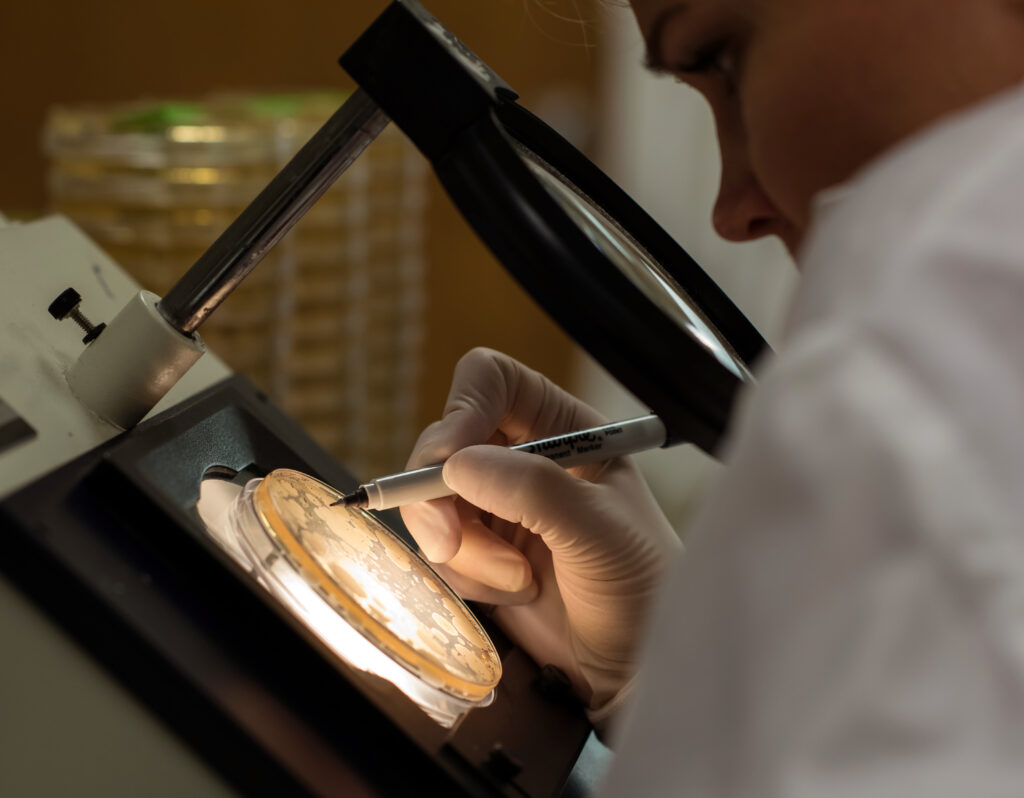
FAQs on Bacillus Strains in the I&I Market
1. How do MDG’s Bacillus strains help reduce a variety of organic materials such as debris, decaying food, human and pet waste and FOG? MDG offers Bacillus-based products with different Bacillus strains that have a wide array of capabilities. Bacillus are living organisms and need food to live and multiply. They break down and consume food sources like proteins, carbohydrates, and FOG, that they use to support growth of more Bacillus cells. 2. How are Bacillus strains able to help reduce odors? Bacillus can use certain odor-causing compounds as a food source or to support growth.Substances like volatile fatty acids (VFAs) are consumed as a food source. Other substances like nitrogen are assimilated and incorporated into new Bacillus cells, which prevents them from being released as odorous gasses like ammonia. 3. What types of applications and industries are MDG’s Industrial and Institutional (I&I) Bacillus-based ingredients suitable for? MDG I&I products are best suited for general cleaning and odor reduction. Microbial cleaners work well in applications like drains and grease interceptors where they can prevent build-up of organic material that causes clogs and odors. They also work well for applications like carpet or tile and grout cleaners where they provide long-lasting cleaning and odor reduction on surfaces that are traditionally hard to clean. 4. How […]

Clearing Up Fats, Oils & Grease
In the restaurant industry, it is common for under-maintained grease interceptors to produce heavy fats, oils, and grease (FOG). Fats, oils, and grease accumulated within collection systems from residential areas and restaurants are common as well! Managing and maintaining FOG is important for reducing odors for customers and citizens. Fats, oils, and grease that originate from restaurants, residential homes, and food processing facilities are commonly discharged into sewer systems. Picture things like vegetable oil and solid fats, such as lard. They eventually accumulate and can cause blockages in drainage systems, grease traps, and lift stations. Luckily for us (and our customers), FOG and other solids can be effectively broken down, digested, and removed with the use of bioaugmentation products by making the entire population more efficient. Tool #1: Bacillus Produce Enzymes Bacillus can produce a broad array of enzymes including esterase and lipase. These enzymes hydrolyze or break down FOG into smaller molecules for Bacillus and other species of bacteria to use as a source of energy. By making more food available, Bacillus can enhance a native microbial population, which then assists in the further removal of FOG. In addition to esterase and lipase, Bacillus also secretes other classes of enzymes including, proteases, amylase, and more. Why is this important? […]
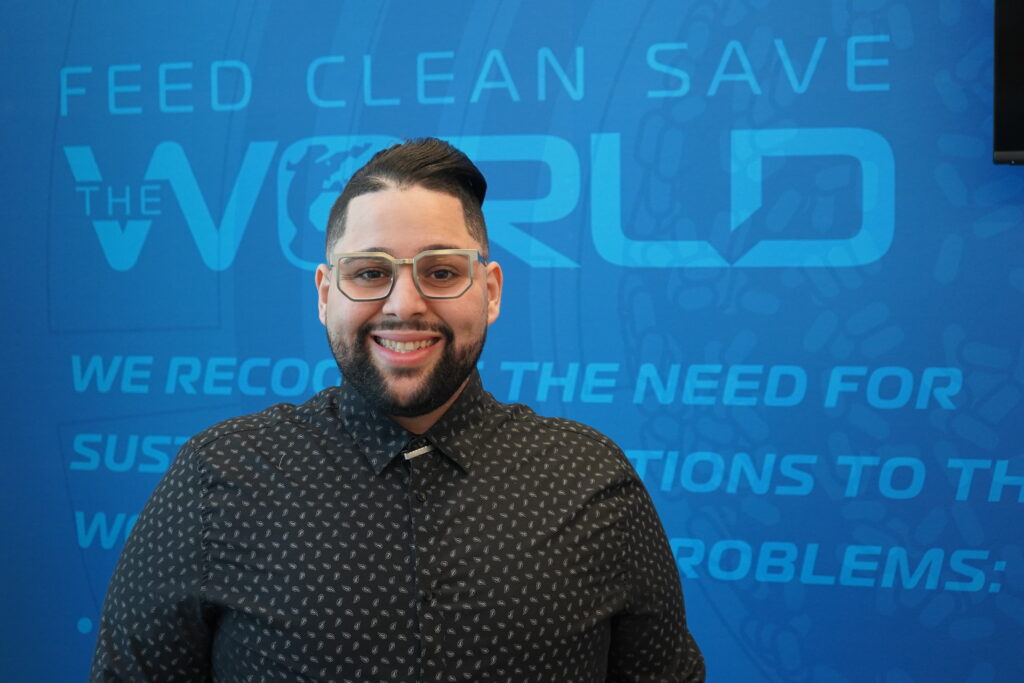
Under the Microscope, Recognition Award Winner: Jean Carlo “JC” Mercado Fajardo
MDG’s Manager of Administration, Jean Carlo “JC” Mercado Fajardo, wins the Initiative and Responsibility Award. What about the work you do at MDG that drives and fulfills you? Every day looks different for me. Its almost like a surprise as to what fun or challenging task will I encounter today. This gives me the opportunity to use my skillsets to problem solve, collaborate with team members to achieve a task or goal, or learn something new. What is your favorite thing about being a part of the MDG Team? Everyone I work with are more than talented and equipped individuals, they are passionate team members, leaders in the field, looking for innovative ways to support and work towards our vision to FEED, CLEAN, and SAVE THE WORLD. What is something at work that you’re passionate about? It depends on what day you’re asking. If I must narrow it down to one thing, I am passionate about learning. Learning a new skill or gaining knowledge about a specific topic. Learning about a problem and seeking ways to solve them or be a part of the solution. My favorite is learning about my colleague’s personal life. It helps me connect with other people, […]